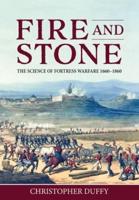Publisher's Synopsis
Excerpt from Sketches of the Life and Correspondence of Nathanael Greene, Major General of the Armies of the United States, in the War of the Revolution, Vol. 1 of 2
With regard to that part of those events in which General Greene was himself an actor, there is the fullest evidence that it was his intention to give to the world an exposition of the causes and motives that governed his actions. In a letter to Mr. John Adams, of the 28th of January, he writes thus the American armies have gained some advantage; my public letters will have given you some idea of them, but the previous measures which led to important events, and my reasons for those measures must lie in the dark until a more leisure hour. The people are deter mined to defend themselves from age to age, rather than give up their independence.
It is not material to explain, though there is no difficulty in doing it, why these papers were never brought to public notice, after the death of General Greene. Suffice it to say, that much time was necessarily consumed, after they came into my possession, __in perusing them, and making my extracts from them. But after surmounting this labour, [found that there was a considerable space yet to be filled up, and for which the materials could only be found among his early friends, and in the country in which he passed his early life, and acted during the greatest part of the Revolutionary war.'
About the Publisher
Forgotten Books publishes hundreds of thousands of rare and classic books. Find more at www.forgottenbooks.com
This book is a reproduction of an important historical work. Forgotten Books uses state-of-the-art technology to digitally reconstruct the work, preserving the original format whilst repairing imperfections present in the aged copy. In rare cases, an imperfection in the original, such as a blemish or missing page, may be replicated in our edition. We do, however, repair the vast majority of imperfections successfully; any imperfections that remain are intentionally left to preserve the state of such historical works.









